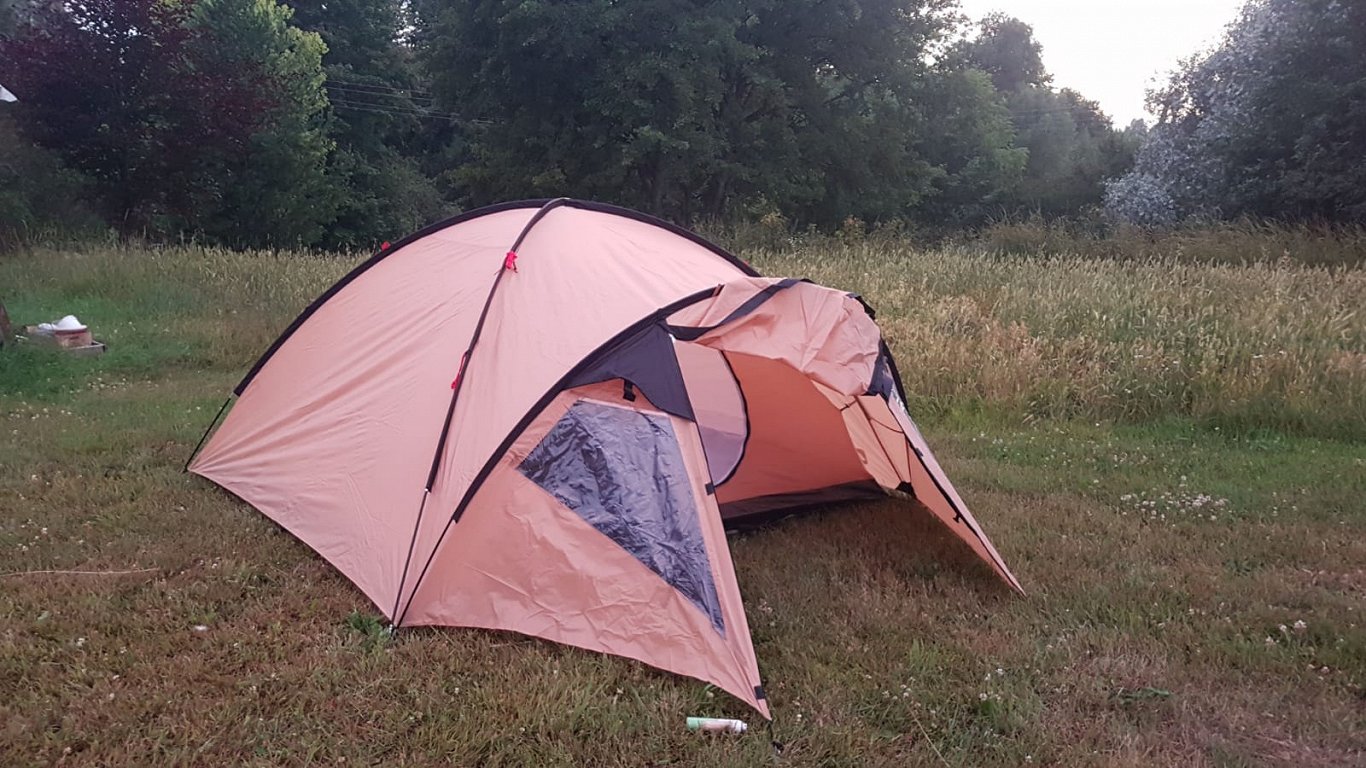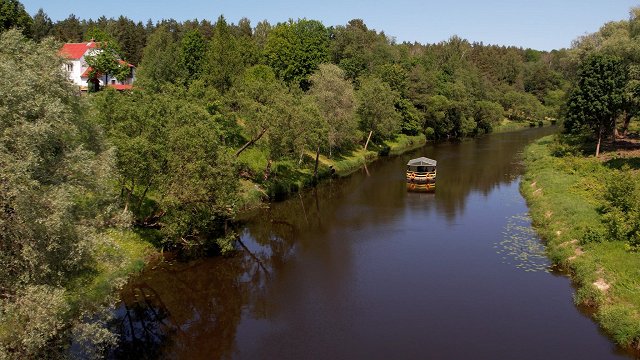State Environmental Service (VVD) inspectors catch and punish several violators every season. This season, 10 individuals have already been fined, though inspectors are more concerned not with people who put up tents in the ecologically sensitive dunes, but with those who selfishly drive cars, motorcycles and quadricycles in the protective zone, often causing serious damage.
"As stipulated by the law on protective zones, tents may not be erected in the dune protection zone, except in specially designed places, such as recreation areas, and campsites," VVD representative Sabīne Jaunbirze told LR.
She explained that the dune protection zone is the area near the sea where plant vegetation begins, the, so-called green zone. No campfires or tents are allowed in this area. To the question whether it is allowed to put up a tent on the beach, where it is just sand or shingle, the expert answers as follows: "We, the inspectors, will not punish you if the tent is built on the sand by the sea. It is better to pitch a tent in the sand closer to the sea than in the dune vegetation. On the beach, if the bonfire is buried in the sand, a wall is created around it and a bonfire is lit inside, then I, as an inspector, do not punish either. The buffer zone law also states that tents and campfires are prohibited in the coastal dune buffer zone. It doesn't say on the beach."
As for pitching a tent on the beach, the exception is specially protected natural areas. You can't pitch a tent on the beach there either, for example, in Slītere National Nature Park. The penalty for pitching a tent in the dune buffer zone can be heavy.
"For an individual person, it can be a fine of from 30 to 1,400 euros. Yes, for pitching a tent in the coastal dune buffer zone, not including specially protected natural areas, where there are additional penalties. There have already been ten violations in the dunes this year. This is already quite a lot, because the active tourism season is just starting," says Sabīne Jaunbirze.
She admits that inspectors are more worried not by people who build tents in the dunes, but by those who enter the dune protection zone with cars, as well as those who drive along the dune zone with motorcycles and quadricycles. A third set of problems come from metal detectorists digging in the dunes.
The inspector explains that the problem is not only the irresponsible behavior of certain people, but also a lack of warning signs informing people about the rules at particular locations.
Meanwhile, Asnāte Ziemele, chairwoman of the board of the "Lauku ceļotājs" (Rural traveller, LC) rural tourism association points to a wider problem – a lack of clearl and uniform rules on how to behave in nature specifying what is allowed and what is forbidden in Latvia. Currently, the rules are very fragmentary and differ from municipality to municipality.
"Actually, each territory, each municipal territory and also protected natural areas have separate rules. And they differ from one territory to another, so we cannot give such uniform advice. It is not only tents that are a problem. The problem is also whether a hammock is allowed to hang in the trees, if is it allowed to walk along the sea with a dog, does it have to be on a leash in this place, or must it be on a leash everywhere? Can you pick mushrooms and berries? These are many questions that each municipality, each territory interprets differently. Often with a reason and often without reason," says Ziemele.
LC is currently writing a project proposing standardized rules on how to behave in nature throughout Latvia.
"For example, the Norwegians have developed the rules of nature accessible to everyone. There are not only rights, there are also responsibilities. We also have to solve this problem and communicate," says Ziemele.

























